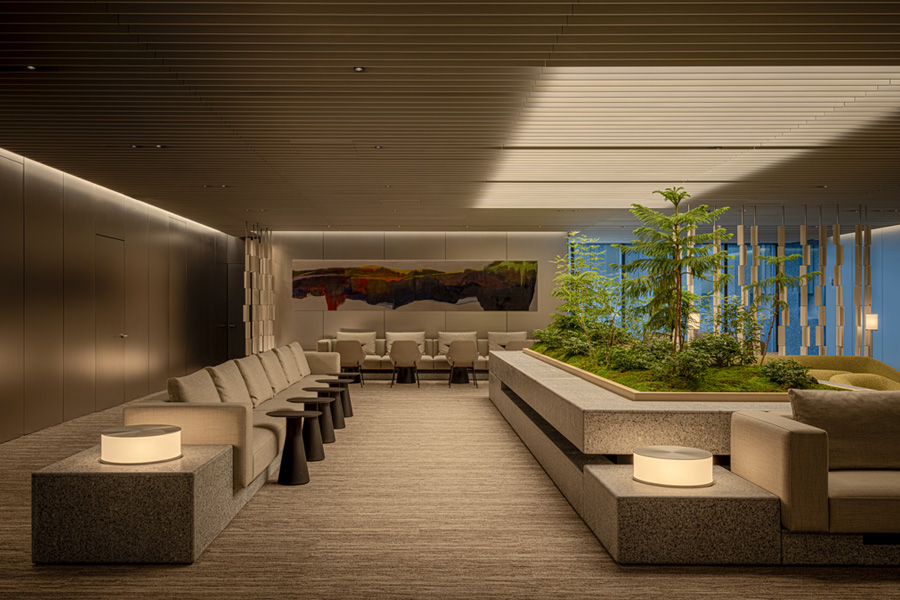Struggling tourist destinations market to digital nomads, restaurants face a sobering reality in our COVID-19 era, and Virgin Galactic reveals its sleek spacecraft rendering. All this and more in this week’s Five on Friday.
Struggling tourist destinations pivot marketing

A “digital nomad” may just be a flashy moniker for creatives with elite passports, but the demographic may seal the fate of numerous tourist destinations struggling to attract visitors amid the COVID-19 pandemic. Skift reports that locales like Bermuda and Estonia have pivoted to become remote work-from-home destination for travelers who want to lengthen their stays. Bermuda, which reopened its air borders on July 1st, noted an uptick in travelers with itineraries stretching well beyond the standard week or weekend visit. A month later, the island territory issued an online application for visitors to book a yearlong stay with an upfront cost $264 per person. Estonia introduced a digital nomad visa program, for which applications are now available for travelers without U.S. passports. The concept was crafted in collaboration with Jobbatical, a startup dedicated to expediting the immigration process for European companies hiring international talent.
Hospitality leaders consider a post-COVID-19 world

As COVID-19 continues to affect the hospitality industry, especially in the U.S., experts throughout the sector offered their insights to HD to help better envision our world beyond coronavirus. Through interviews, webinars, and Instagram Live discussions, HD compiled multiple perspectives from industry leaders to illustrate the pandemic’s impact on the hospitality world in the months and years to come. Among the findings, purposeful travel will largely lead the industry, guest safety and sanitation protocols will remain paramount, and hotels and restaurants will have to evolve if they want to continue to create experiences for guests.
One-third of U.S. restaurants face permanent closure

A sobering new report from restaurant consultancy Aaron Allen & Associates indicates that one in three U.S. restaurants may permanently shutter as a result of forced closures due to spikes in COVID-19 cases. Bloomberg reports that 231,000 of the country’s nearly 660,000 restaurants are currently facing this very threat. The report also reveals that more than 8,000 restaurants have already been directly affected because of an employee with coronavirus.
Eater also reported that most restaurants lack the capacity to endure a second forced closure due to losses taken upon reopening. Twisted Soul Cookhouse & Pours in Atlanta, which is cited in the article, reveals it spent $5,000 to sanitize the property and filtration systems, while more than $3,000 went toward new partitions.
Virgin Galactic unveils spacecraft rendering

Virgin Galactic has taken its latest small step toward commercial space travel with the reveal of its passenger spacecraft. The new rendering depicts a sleek vessel designed in collaboration with Rolls-Royce that will be equipped to fly at speeds in excess of Mach 3; for context, the original Concorde soared around a speed of Mach 2. The design will also accommodate between nine and 19 travelers across business to first-class seating. According to TechCrunch, Virgin Galactic is slated to begin work with NASA to realize its dream of high-speed, high-altitude point-to-point travel. Virgin spacecrafts will aim to fly beyond the Concorde’s cruising altitude of 60,000 feet as well.
Facebook looks to dominate New York’s tech landscape

Amid the ongoing pandemic and myriad controversy, Facebook has agreed to lease all office space within the century-old James A. Farley Building in Midtown Manhattan. The newly leased 730,000-square-foot space grows Facebook’s total office footprint in New York to more than 2.2 million square feet. Facebook currently employs more than 4,000 employees in New York—a substantial increase from 2,900 New York-based employees at the beginning of 2020. The New York Times reports that the Midtown neighborhood Facebook will soon occupy is emerging as a tech corridor. Apple, Amazon, and Google each lease offices in the area.



